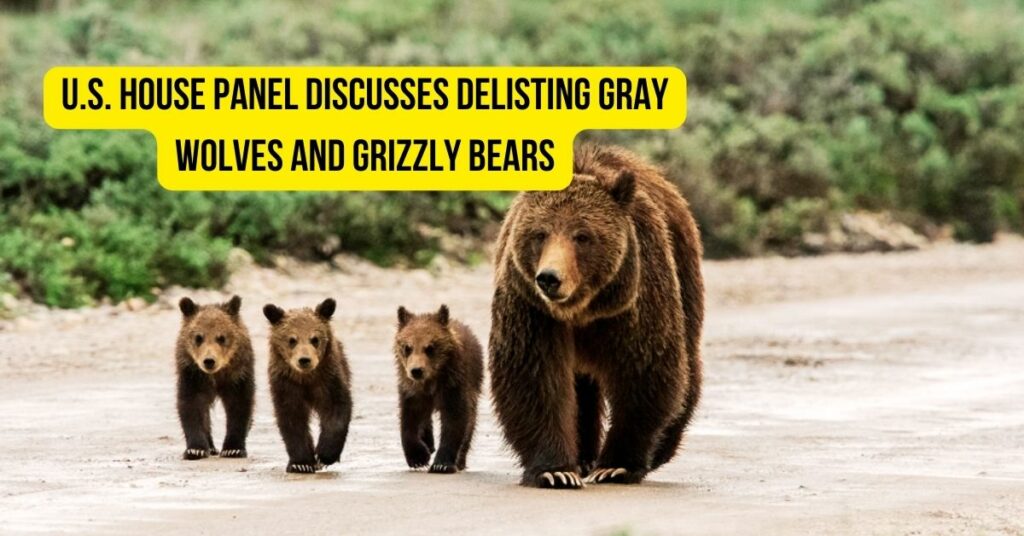Western conservative politicians have revived attempts to delist particular grizzly bear and gray wolf populations from the Endangered Species Act. They argued for doing so before a U.S. House panel last week.
Three pieces of legislation were discussed at length during the Subcommittee on Water, Wildlife, and Fisheries hearing. First, a bill introduced by Montana Republican Matt Rosendale would remove protections for grizzly bears in the Northern Continental Divide Ecosystem.
Similarly, another bill introduced by Wyoming Republican Harriet Hageman would protect grizzlies throughout the Greater Yellowstone Ecosystem. More than a thousand grizzlies live in both regions, according to wildlife officials.
The delisting process would also be immune from future legal challenges under Hageman’s proposed legislation. Federal courts overturned the fish and Wildlife Service’s attempts to transfer Greater Yellowstone bear control to the states in 2007 and 2017.
Wyoming Game and Wildlife Department Director Brian Nesvik supported eliminating the bears’ federal protections. He said that a rise in the species’ population in Wyoming had resulted in more confrontations between the animals and people.
“Because existing habitats are nearly full, bears have been displaced to non-suitable habitats, including private lands, cornfields, towns, and backyards,” Nesvik said. “The people who supported recovery and changed their lives to accommodate a thriving grizzly bear population are growing frustrated.”
The two grizzly bear populations in the United States are now under assessment by the U.S. Fish and Wildlife Service. The federal government has received petitions from Idaho, Montana, and Wyoming to delist the species and has promised to decide in roughly a year.
The agency’s deputy director, Stephen Guertin, argued against this legislation, saying it would undermine efforts to protect endangered species.
“Each of these bills would put Congress in control of delisting species without the benefit of using the best available scientific and commercial information and without considering current conditions,” Guertin said. “These processes under the law ensure that the integrity of the important goals of the ESA envisioned by Congress 50 years ago is maintained.”
With the third piece of legislation, Colorado Republican Lauren Boebert seeks to abolish legal protections for the gray wolf population in the lower 48 states. The management of wolves by the states is contentious, but it is now in effect in Idaho, Montana, Wyoming, eastern Washington, eastern Oregon, and north-central Utah.
Environmental organizations are demanding a relisting of the species because of the intensive wolf hunting and trapping permitted in Montana and Idaho in recent years. Meanwhile, Coloradans have decided to bring gray wolves back into the state before the end of the year.
You’ve come to the right place if you’re looking for other animal-related articles. Here are some resources you may find helpful:
- Hageman and State Authorities Promote Evading the Endangered Species Act.
- First Wolverine Sighting Beyond Its Habitat in 30 Years.
Boebert claims that ranching and agricultural interests across the Mountain West support her initiative, but several environmental organizations vehemently oppose her bill and the two others.
“These anti-science attacks on wolves and grizzlies are a cynical attempt to turn over management authority to states that have extreme predator-killing agendas and policies,” said Erik Molvar, a wildlife biologist and executive director of Western Watersheds Project.
However, Nesvik said states like Wyoming have management plans authorized by local wildlife managers and compatible with conservation principles and practices.

